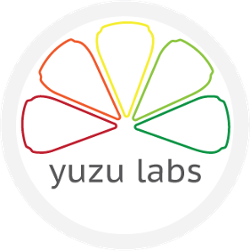
The Trademark Trial and Appeal Board (TTAB) decided the case of Yuzu Labs Public Benefit Corporation, 2017 WL 3102592. The TTAB is an administrative board that deals with issues arising out of the United States Patent and Trademark Office (USPTO). The TTAB oversees opposition, cancellation, interference and concurrent use hearings. The TTAB also hears appeals for trademark application rejections from USPTO Trademark Examining Attorneys.
Background
Yuzu Labs Public Benefit Corporation (Yuzu) submitted an application for trademark registration of the mark SITECONNECT. Yuzu sought to register this mark on the Principal Register under International Class 42, a category that includes the design and development of computer hardware and software. Yuzu sought to register the SITECONNECT mark for a website designed to help users locate and participate in clinical research studies.
The Trademark Examining Attorney (TEA) rejected Yuzu's application for the SITECONNECT mark, elaborating that the mark was merely descriptive of [Yuzu]s services. The TEA relied on 15 U.S.C. 1052(e)(1) of the Trademark Act in justifying this decision.
After receiving the TEA's decision, Yuzu protested and requested another review. The TEA rejected this request, refusing to reconsider the initial decision. As a result, Yuzu appealed to the TTAB.
Analysis
The TTAB first explored the descriptive requirement of trademark law. Under 15 U.S.C. 1052(e)(1), trademark protection is not appropriate when a mark is merely descriptive or deceptively misdescriptive of the product in question. Essentially, this means that a mark cannot simply describe the product or service offered. Alternatively, the mark cannot deceive the general public by providing a description unrelated to the product or service offered.
The TTAB then considered whether the SITECONNECT mark had independent significance, beyond a mere description of Yuzu's website and corresponding services. The TTAB considered that SITE referred to the clinical research sites of the users and CONNECT referred to function of the software. The TTAB also considered that both terms have commonly understood definitions, making it difficult for SITECONNECT to create a separate commercial impression. Stated otherwise, the SITECONNECT mark does not convey a separate meaning outside of the standard definitions of the words site and connect. As a result, it is merely descriptive.
The TTAB also addressed Yuzu's argument that SITECONNECT was a unique mark because it was not used by other businesses. Citing KP Permanent Make-Up, Inc. v. Lasting Impression I, Inc., 543 U.S. 111, 122 (2004), the TTAB stated that trademark law does not allow a business to achieve a complete monopoly on use of a descriptive term simply by grabbing it first. In other words, a descriptive term does not gain independent meaning simply because no other business uses that term.
Consequently, the TTAB denied Yuzu's appeal, confirming that SITECONNECT was merely descriptive in this situation.
You Might Need Legal Advice from an Experienced Patent and Trademark Attorney
Navigating the ins and outs of patents and trademarks can be a challenge. There are various legal regulations and considerations at play, which can make it difficult to understand the proper course of action. But a knowledgeable patent and trademark attorney can make all of the difference, helping you avoid pitfalls and resolve any issues that might arise.
If you are in need of assistance with trademarks, patents, or other related matters, please do not hesitate to contact Whitcomb, Selinsky, PC immediately. Located in Denver, Colorado, the attorneys at Whitcomb, Selinsky, PC can be reached by phone at (303) 534-1958 or online by completing the simple form linked below.



